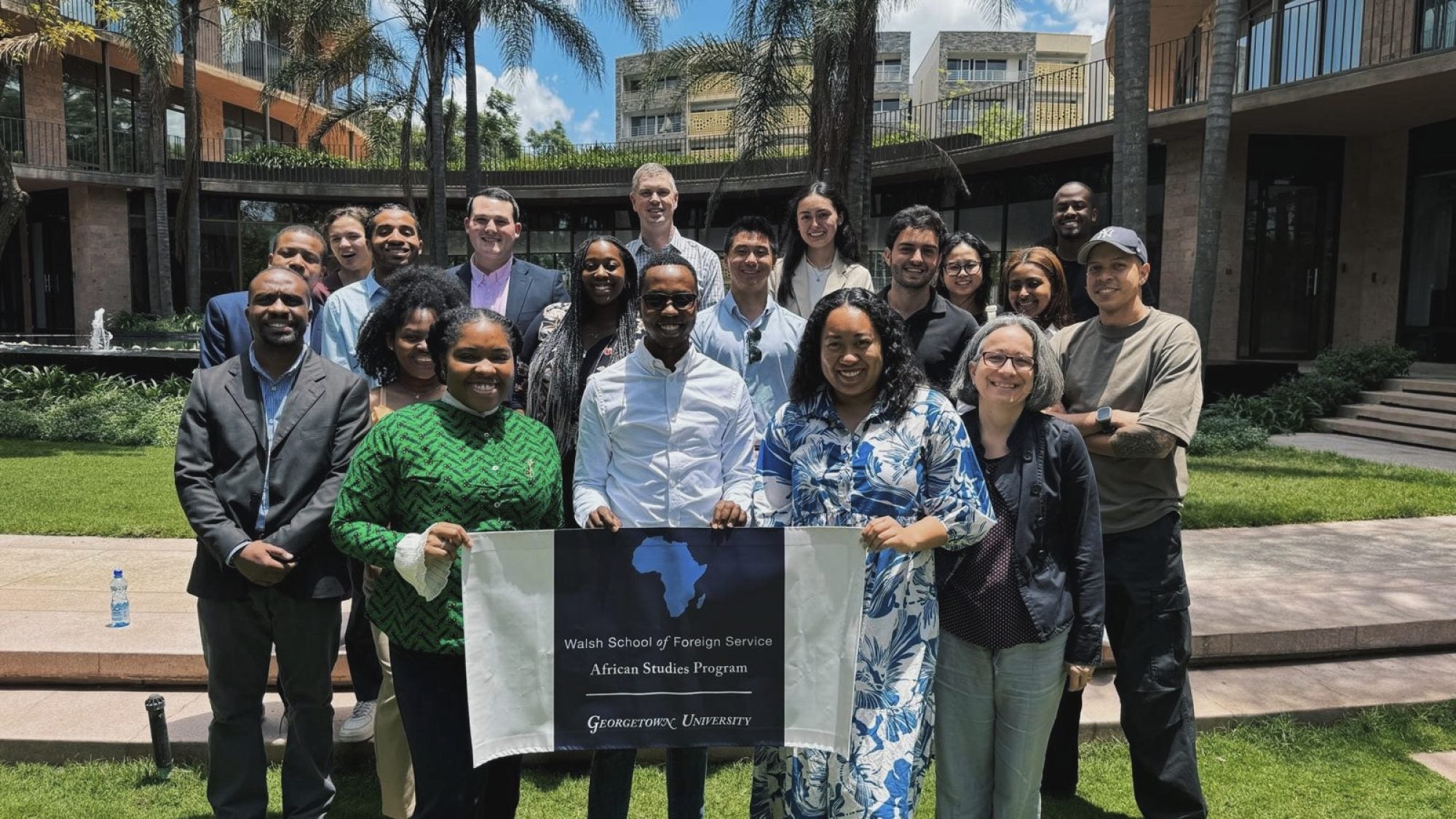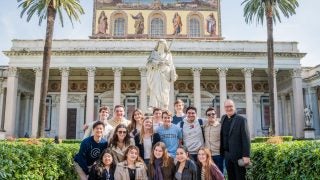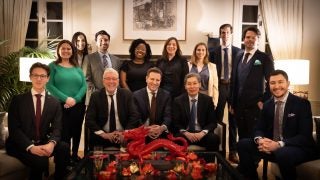Throughout my entire academic journey, cross-cultural learning has been one of the most powerful mechanisms that has opened my perspectives. Understanding how a community operates and thrives sits at the center of how I think about approaching global public health work.
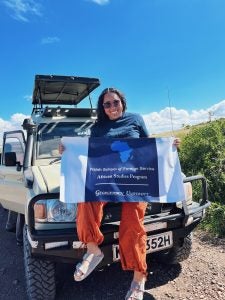
This spring break, I had the incredible opportunity to travel to Nairobi, Kenya with the Walsh School of Foreign Service African Studies Program. As a master’s student at the McCourt School of Public Policy, I was excited to explore global development work in Kenya to expand my curiosities in international development work. I knew this trip would be full of new learning experiences, but I had no idea that it would be a pivotal moment for helping to refine my career aspirations. At McCourt, I have primarily studied domestic health policy issues around health insurance and maternal health disparities. I wanted this educational experience to help gain a better understanding of where development efforts in a diversity of sectors fit into the larger global health conversation.
Here’s a recap of everything we did in Nairobi.
Monday
Our first visit was to the US Embassy in Kenya, which is across from the United Nations Office in Nairobi, the UN headquarters in Africa. With previous class preparations and discussions on understanding some of the intense historical context surrounding the 1998 attacks on the embassy, our group was ready to learn from foreign service officers about the political, security and development efforts in the region. I was fascinated to learn about the large capacity of the United States Agency for International Development (USAID) team in Kenya which has worked with the Kenyan government and people for almost 60 years.
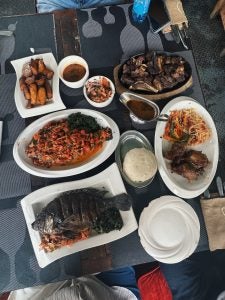
In the afternoon, we visited KOKO-Networks, one of the most innovative organizations I have ever experienced. Their work not only directly targets the most financially vulnerable individuals and families, but also completely changed my outlook on how companies can effectively function in the complex carbon credit system. Many Kenyan families cook meals by using charcoal, which is harmful to the environment (unsustainable deforestation, air pollution, etc.) and increases health risks. KOKO Networks created a safe and easy-to-use two-burner stove for people to cook using bioethanol fuel. This product and business approach helps families) by charging only $10 for the stove and about $1.50 for a two-liter refill of the bioethanol fuel at fuel ATMs that KOKO Networks has placed in neighborhoods at local small businesses.
Tuesday
Kibera, a neighborhood in Nairobi, is home to Africa’s largest informal settlement on the continent and is the world’s third-largest slum, with an approximate population of over 500,000 residents. Our visit in Kibera was one of my most powerful experiences from the entire trip. Witnessing an area that does not receive government services (water, electricity, etc.) and is home to many living in extreme poverty underscored the importance of learning how to create sustainable policy interventions that center community voices as a policy student.
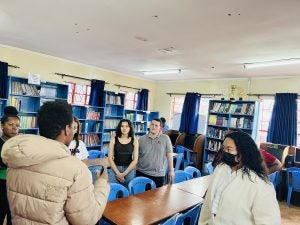
In Kibera, we visited Shining Hope for Communities (SHOFCO), the largest active NGO supporting the Kibera community and people. While visiting with SHOFCO staff, it was clear that their work was grounded in grassroots organizing and community partnerships. SHOFCO is home to an impressive women’s empowerment center that trains women to sew and sell their own crafted products. The NGO also operates a water treatment system that provides clean, low-cost drinking water and also has a domestic violence prevention office that manages individual cases to support survivors. I was quite inspired by observing the robustness in community connections, trust and compassion SHOFCO brings forward to uplift Kibera residents.
Wednesday
Only two full days into the trip and I was already feeling in awe with learning so much of the amazing community center work in Nairobi and across the country. By Wednesday, I was quite curious how our visit with a new technology start-up would go. Leta, an operating system software development company for logistics, is helping to tackle one of the continent’s biggest inefficiencies: supply chain delivery. In just a short afternoon, I was amazed at how Leta’s leadership team walked us through solving delivery route inefficiencies with their in-house created software. This technology helps local business owners reach more customers and delivery drivers plan the most effective routes. Even though the company is just a few years old, I saw their technology’s potential in going beyond daily food deliveries to supporting other markets such as healthcare, education, agriculture and more!
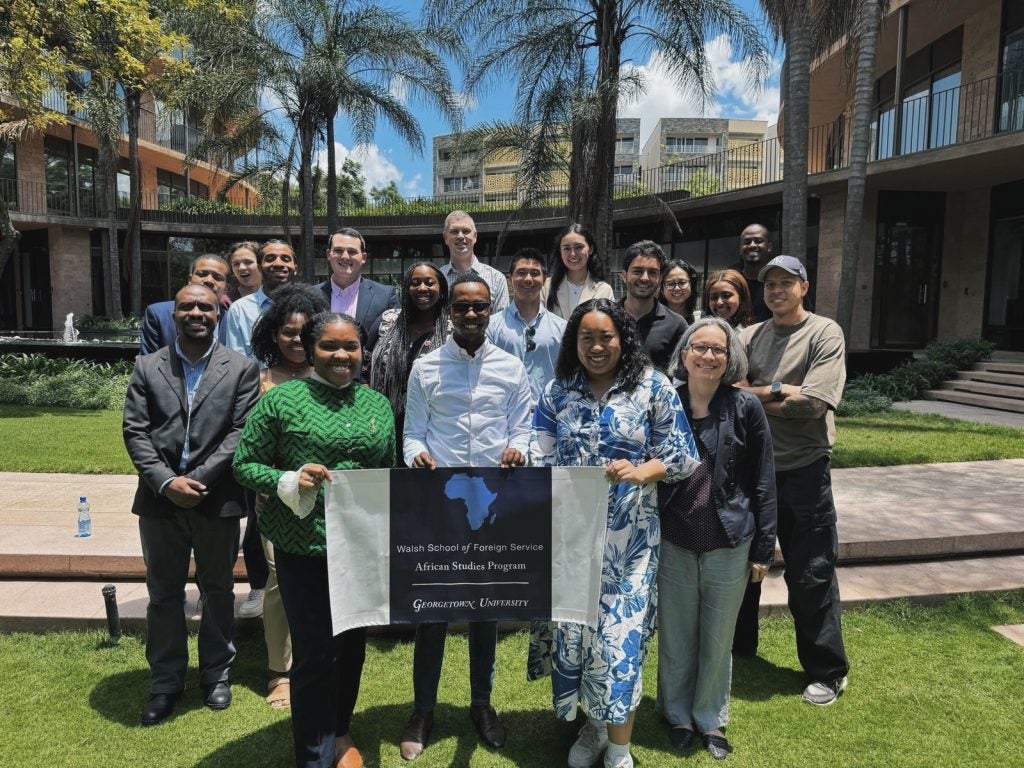
Thursday
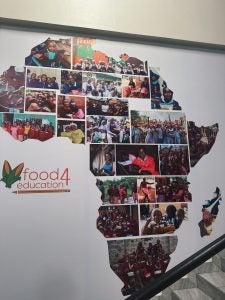
Imagine cooking more than 31 million nutritious meals for Kenya’s schoolchildren. At Food4Education, Wawira Njiru, the founder and executive director, has created a clear and effective blueprint for school feeding in Africa. We toured one of the organization’s largest kitchens with massive industrial-sized food processing facilities. I loved learning about Food4Education’s reach to Nairobi school children and the organization’s efforts to feed children in more rural communities. They have crafted a uniquely proficient framework for cooking and delivering nutritious meals to students across the country. Throughout this visit, I thought a lot about how this NGO is building Kenya’s school feeding infrastructure from the ground up. The word inspired does not even begin to encapsulate how transformative this effort in fighting child hunger truly is.
Friday
On our last day in the city we visited the Georgetown University Initiative on Innovation, Development and Evaluation (gui²de) office. We heard from multiple members of the team about how the office conducts field-based research on interventions and policies on a range of topics. One compelling project discussed was a research effort focused on understanding road safety measures s of traffic incidents, many leading to severe injuries or mortality. It was great to see how Georgetown’s network has encompassed global development work and research. The visit opened my eyes to future work I would be eager to engage with.
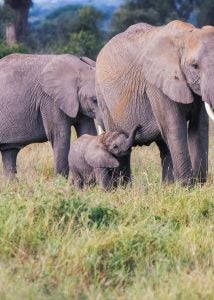
Saturday
After an entire week of transformative visits, we traveled five hours south to Amboseli National Park. We were able to visit with the indigenous Masai Tribe members and learn about their rich history and connection to Mount Kilimanjaro. There are few times in my life that I have ever been speechless, and driving through the breathtaking sites below Mount Kilimanjaro was definitely one of them. Words do not even begin to describe the beauty of being fully immersed in the safari. I hope some of the pictures shared here can do some justice.
Embarking on this spring break trip was a life-changing and transformative experience. In East Africa, I discovered the power of exploration, the depth of human connection and the boundless potential for global development. Visiting all the organizations doing work on the ground in Kenya truly enlightened my perspectives of the incredible community network across the continent. At many of our group visits, I learned about the interdisciplinary nature of organizations aiming to tackle multiple issues of environmental conservation, clean water access, technology, early education, food insecurity, peacebuilding, broader humanitarian aid and so much more.
As an aspiring public health and policy leader, I feel more equipped and empowered with lessons learned from this trip about the continued importance of centering community voices to lead global, actionable and resilient change.
Maya Millette (G’24) is a second-year Master of Public Policy student at the McCourt School of Public Policy focusing on public health topics.
